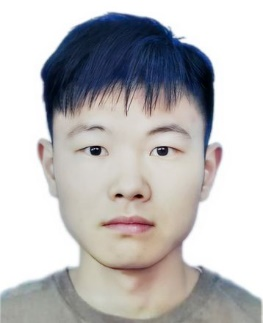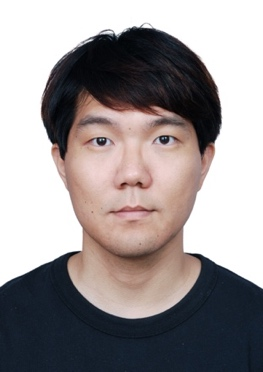
杨国春
博士,研究员,研究组组长
Email:yangguochun@@gdiist.cn
个人简介:
杨国春,研究员,认知神经表征与调控研究组组长。2012年于武汉大学获得医学学士学位(医学检验专业)。2018年于中国科学院大学获得理学博士学位(认知神经科学专业)。2018年7月至2025年2月,先后在中国科学院心理研究所和美国爱荷华大学心理与脑科学系从事博士后研究。其研究成果发表于PLOS Biology, eLife, Journal of Neuroscience, Neuroscience & Biobehavioral Review等期刊。
认知神经表征与调控研究组(Laboratory of Cognitive Neural Representation and Regulation):
复杂的高级认知功能(如执行控制、注意、记忆等)是人类区别于其他生物的核心特征。例如,人类可以借助丰富的想象和严密的逻辑思维,对未来进行复杂的计划,这是其他生物难以企及的。理解高级认知功能的机制,不仅有助于揭示人类智慧的奥秘,也将为类脑人工智能的发展提供重要启示。
本研究组综合运用认知行为范式、脑电(EEG)、功能磁共振(fMRI)和计算建模等技术,深入探索高级认知功能的神经表征机制及认知策略调控机制。
主要研究方向和研究问题:
(1)高级认知功能的表征机制:高级认知功能(如认知控制)在不同情境下具有不同的状态。这些状态如何在大脑中被记忆和表征?这些表征又如何指导行为?
(2)认知策略的调控机制:人类对外界信息的加工不是被动的,而是会基于目标要求和主观意图进行主动调控,从而强化重要信息、抑制无关干扰信息。这一调控过程如何实现?其背后遵循哪些原则?
(3)行为/神经表征的类脑计算模型:根据外界输入,大脑产生特定的活动,最终决定了行为表现。三者之间有怎样的映射关系?能否通过计算模型实现统一描述?
(4)执行功能的发展变化与相关疾病:执行功能是实现目标导向行为的基础,但是在特定人群中会表现出不成熟、退化或受损。执行功能对应的脑机制在毕生发展过程中会发生怎样的变化?如何设计有效的研究范式来测量疾病人群中的执行功能异常?
本课题组长期招收联合培养博士生(澳门大学、北师大珠海等高校)、博士后和实习生。欢迎感兴趣的同学邮件联系yangguochun@gdiist.cn。
代表论著(#共同一作,*通讯作者):
1. Yang G.*, Jiang J. * (2024). Cost-benefit tradeoff mediates the transition from rule-based to memory-based processing during practice. Accepted, PLOS Biology, 23(1), e3002987. https://doi.org/10.1371/journal.pbio.3002987
2. Yang, G., Wu, H., Li, Q., Liu, X., Fu, Z., & Jiang, J. (2024). Dorsolateral prefrontal activity supports a cognitive space organization of cognitive control. eLife, 12:RP87126. https://doi.org/10.7554/eLife.87126
3. Yang, G.#, Wang, K.#, Nan, W., Li, Q., Zheng, Y., Wu, H., & Liu, X. (2022). Distinct brain mechanisms for conflict adaptation within and across conflict types. Journal of Cognitive Neuroscience, 34(3), 445-460. https://doi.org/10.1162/jocn_a_01806
4. Yang, G.#, Xu, H.#, Li, Z., Nan, W., Wu, H., Li, Q., & Liu, X. (2021). The congruency sequence effect is modulated by the similarity of conflicts. Journal of Experimental Psychology: Learning, Memory and Cognition, 47(10), 1705-1719. https://doi.org/10.1037/xlm0001054
5. Yang, G., Wu, H., Qi, Y., & Liu, X. (2021). Cognitive and neural mechanisms of human gender processing. Advances in Psychological Science [Chinese], 29(1),1-10. https://doi.org/10.3724/SP.J.1042.2020.02008
6. Li, Z., Goschl, F., & Yang, G.* (2020). Dissociated neural mechanisms of target and distractor processing facilitated by expectations. Journal of Neuroscience, 40(10), 1997-1999. https://doi.org/10.1523/JNEUROSCI.2562-19.2020
7. Yang, G., Li, Z., Wu, H., & Liu, X. (2019). Generality and specificity of cognitive control: research logics and debates. Acta Physiologica Sinica [Chinese], 71(1), 140–148. https://doi.org/10.13294/j.aps.2018.0096
8. Li, Q.#, Yang, G. #, Li, Z., Qi, Y., Cole, M. W., & Liu, X. (2017). Conflict detection and resolution rely on a combination of common and distinct cognitive control networks. Neuroscience and Biobehavioral Reviews, 83, 123-131. https://doi.org/10.1016/j.neubiorev.2017.09.032
9. Yang, G., Nan, W., Zheng, Y., Wu, H., Li, Q., & Liu, X. (2017). Distinct cognitive control mechanisms as revealed by modality-specific conflict adaptation effects. Journal of Experimental Psychology: Human Perception and Performance, 43(4), 807-818. https://doi.org/10.1037/xhp0000351





